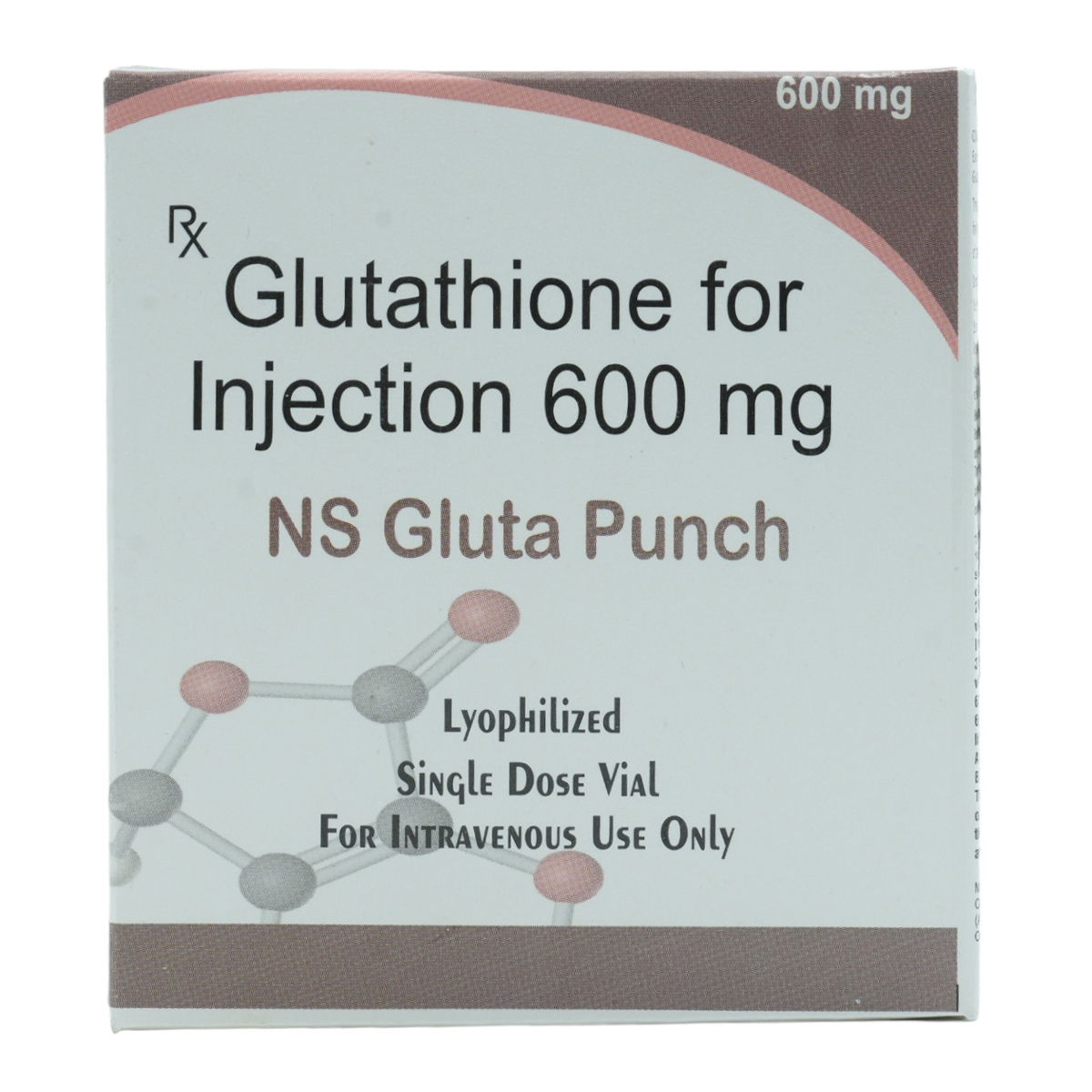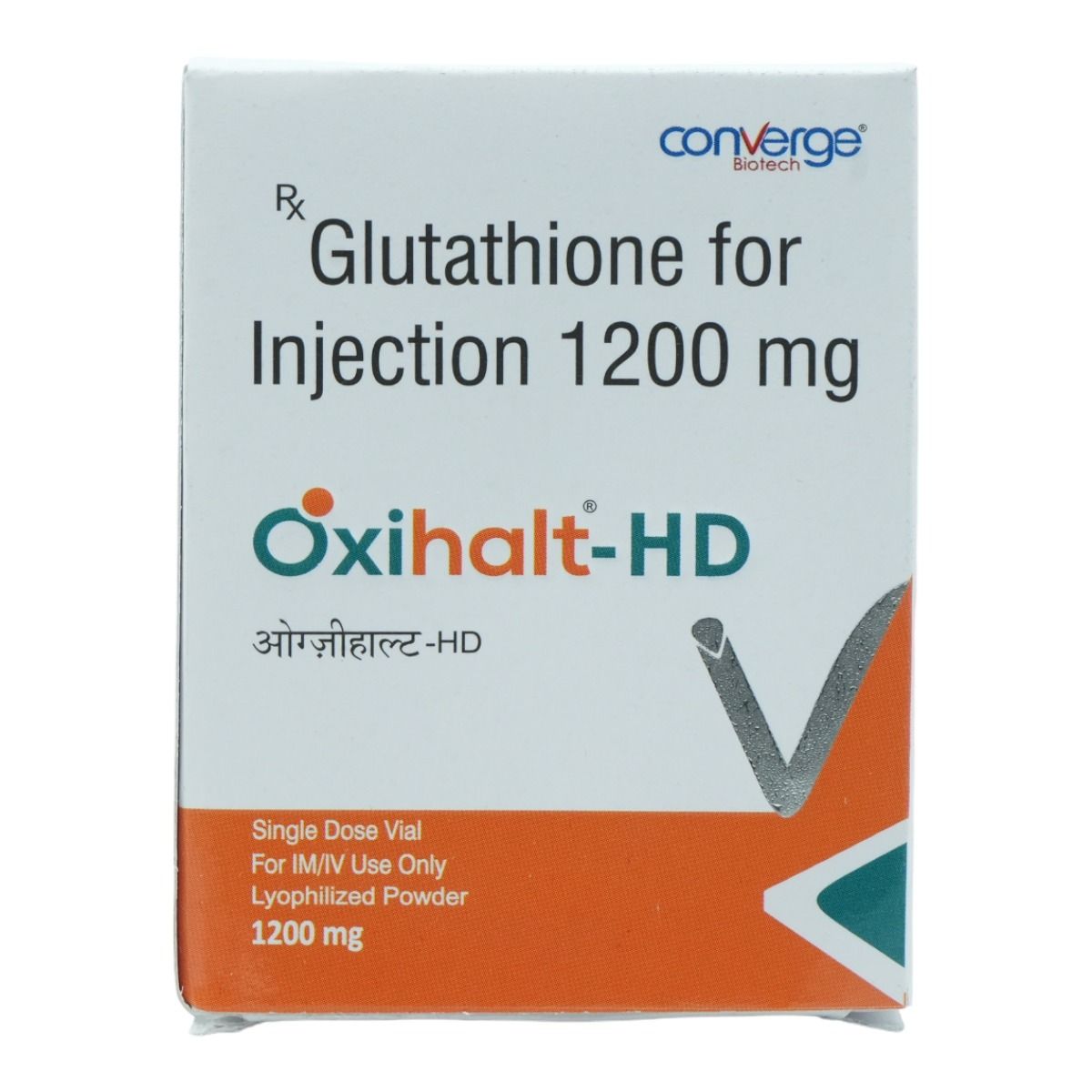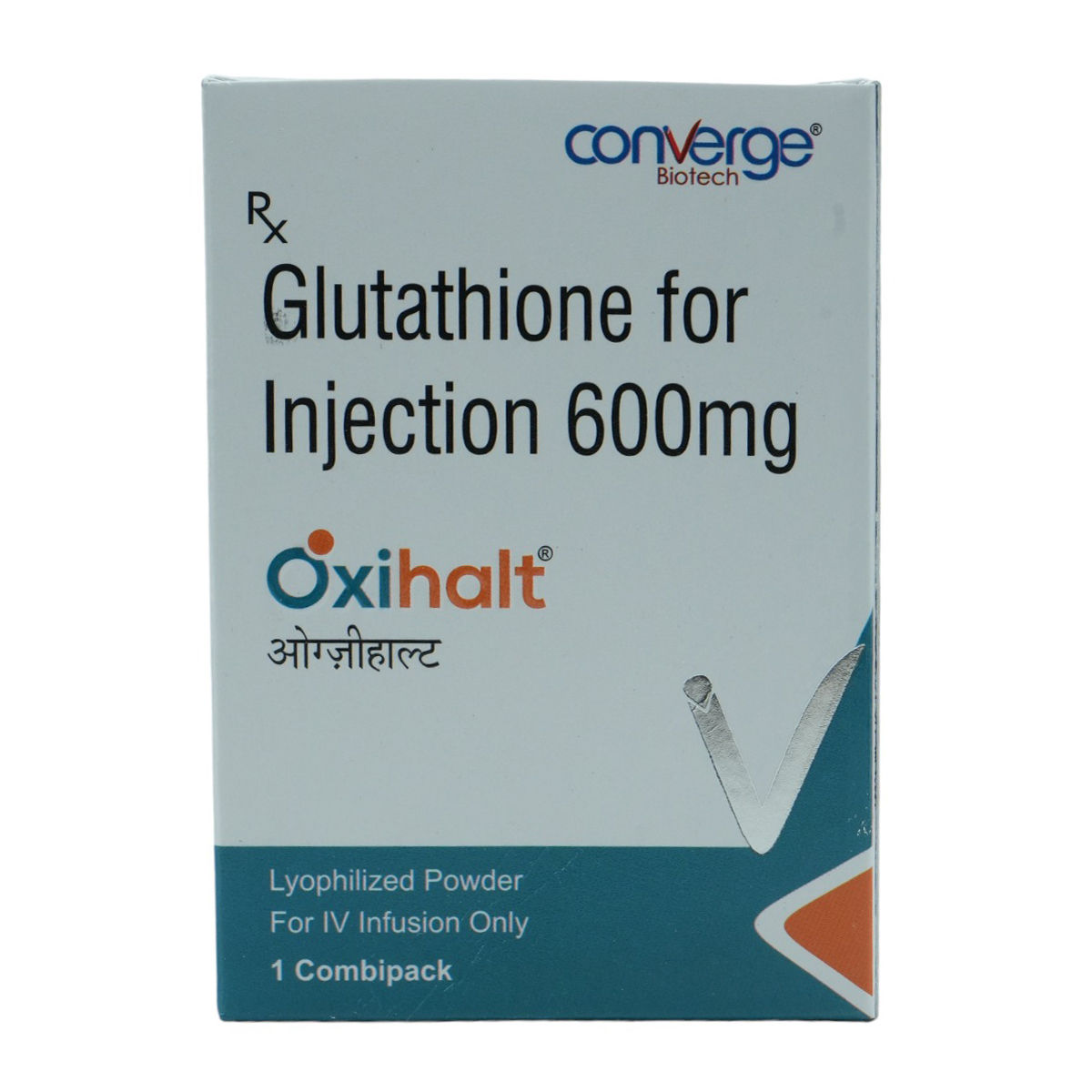Glutathione
About Glutathione
Glutathione is used in case of low dietary intake or increased need for glutathione. It is also indicated in the treatment of alcoholic liver disease, liver cirrhosis, and liver damage in HIV/HCV co-infection and gastritis.
Glutathione contains ‘Glutathione’, an antioxidant made up of three amino acids, namely glycine, glutamic acid, and cysteine. It is involved in various processes, such as tissue building and repair, as well as the production of proteins and chemicals necessary for the body. It protects against oxidative damage and prevents liver damage.
You are advised to take Glutathione for as long as your doctor has recommended, depending on your medical condition. In some cases, Glutathione may cause flatulence, loose stools, flushing, and weight gain. You are advised to talk to your doctor if the side effects persist or worsen.
If you are known to be allergic to any of the components in Glutathione, please inform your doctor. Consult your doctor if you are pregnant or breastfeeding. Keep your doctor informed about your health condition and any medications you are taking to rule out any potential interactions or side effects.
Uses of Glutathione
• Treatment of glutathione deficiency: It helps restore low glutathione levels in the body, which supports antioxidant protection and overall health.
• Management of alcoholic liver disease: Glutathione reduces liver inflammation and oxidative stress caused by alcohol consumption.
• Support in liver cirrhosis: Protects liver cells from further damage and supports liver function in cirrhotic conditions.
• Liver protection in HIV/HCV co-infection: Reduces liver damage caused by HIV and hepatitis C virus infection.
• Relief from gastritis: It soothes the stomach lining and reduces inflammation in the digestive system.
Medicinal Benefits
Glutathione is used in case of low dietary intake or increased need for glutathione. It is also indicated in the treatment of alcoholic liver disease, liver cirrhosis, and liver damage in HIV/HCV co-infection and gastritis. Glutathione contains ‘Glutathione’, an antioxidant made up of three amino acids: glycine, glutamic acid, and cysteine. It is involved in various processes, such as tissue building and repair, as well as the production of proteins and chemicals necessary for immune system function. It protects against oxidative damage and prevents liver damage.
Directions for Use
- Glutathione can be taken with or without food, or as advised by your doctor.
- Follow your doctor's instructions on the dosage and timing of this medication.
- Swallow Glutathione as a whole with a glass of water.
- Do not break, crush or chew it.
Storage
Side Effects of Glutathione
- Flatulence
- Loose stools
- Flushing
- Weight gain
Drug Warnings
Do not take Glutathione if you are allergic to any of its components. Consult your doctor if you are pregnant or breastfeeding. Let your doctor know if you are taking any other medicines or herbal products. Before using the Glutathione, inform your doctor if you have a history of asthma, heart, liver, or kidney diseases. Glutathione is not recommended for patients who have undergone an organ transplant.
Drug Interactions
Drug-Drug Interactions: No interactions found/established.
Drug-Food Interactions: No interactions found/established.
Drug-Disease Interactions: No interactions found/established.
Drug-Drug Interactions Checker List:
Safety Advice

Alcohol
consult your doctorIt is not known if alcohol interferes with the working of Glutathione. Please consult a doctor.

Pregnancy
consult your doctorLimited data is available. Please consult your doctor if you are pregnant or have any concerns about this.

Breast Feeding
consult your doctorLimited data is available. Consult your doctor if you are breastfeeding.

Driving
consult your doctorIt is unknown whether Glutathione affects your ability to drive. Drive or operate machinery only if you are alert.

Liver
consult your doctorLimited data is available. Please consult your doctor if you have a liver impairment or any concerns regarding this.

Kidney
consult your doctorLimited data is available. Please consult your doctor if you have kidney impairment or any concerns regarding this.

Children
consult your doctorLimited data is available regarding the usage of Glutathione in children, so please consult a doctor.
Habit Forming
Diet & Lifestyle Advise
- Follow a well-balanced diet.
- Exercising regularly helps improve overall health.
- Rest well, and get plenty of sleep.
- Avoid smoking and alcohol consumption.
- Meditation and yoga can help lower stress.
- Avoid processed and fried food.
Patients Concern
Disease/Condition Glossary
Glutathione deficiency: It occurs due to low dietary intake, increased need for glutathione, or when the body does not produce sufficient glutathione. Symptoms include anaemia, metabolic acidosis (build-up of acid in the body), and frequent infections.
Alcoholic liver disease: It is caused due to heavy consumption of alcohol. Over time, it could lead to scarring and cirrhosis of the liver. Symptoms include feeling sick, loss of appetite, weight loss, and yellowing of the skin and eyes.
Liver cirrhosis: Liver cirrhosis is the damage to the liver, which causes scarring and liver failure. Symptoms include weakness, tiredness, nausea, vomiting, loss of appetite, and yellowing of the skin and eyes.
FAQs
Glutathione is used in case of low dietary intake or increased need for glutathione. It is also indicated in the treatment of alcoholic liver disease, liver cirrhosis, and liver damage in HIV/HCV co-infection and gastritis.
Glutathione is involved in various processes, including tissue building and repair, strengthening the immune system, and producing chemicals and proteins essential for the body. It helps reduce oxidative damage and prevent liver damage.
Glutathione is naturally found in a variety of foods, including broccoli, Brussels sprouts, cauliflower, cabbage, asparagus, potatoes, carrots, peppers, avocados, spinach, and melons.
If you miss a dose, take it as soon as you remember. However, if it is time for the scheduled dose, skip the missed dose and take the scheduled dose instead.
Glutathione is safe if taken in the dose and duration suggested by the doctor.
Glutathione is an antioxidant made up of three amino acids, namely glycine, glutamic acid, and cysteine.
Though glutathione has skin whitening properties, Glutathione is indicated in the treatment of glutathione deficiency, alcoholic liver disease, liver cirrhosis, liver damage in HIV/HCV co-infection, and gastritis.
Yes, Glutathione contains 'Glutathione', an antioxidant made up of three amino acids, namely glycine, glutamic acid, and cysteine.
Glutathione may cause weight gain as a side effect. Maintain proper weight by eating healthy food and exercising regularly. Glutathione is not known to impair fertility or cause cancer.
Glutathione may cause side effects like flatulence, loose stools, flushing, and weight gain. You are advised to talk to your doctor if the side effects persist or worsen.








